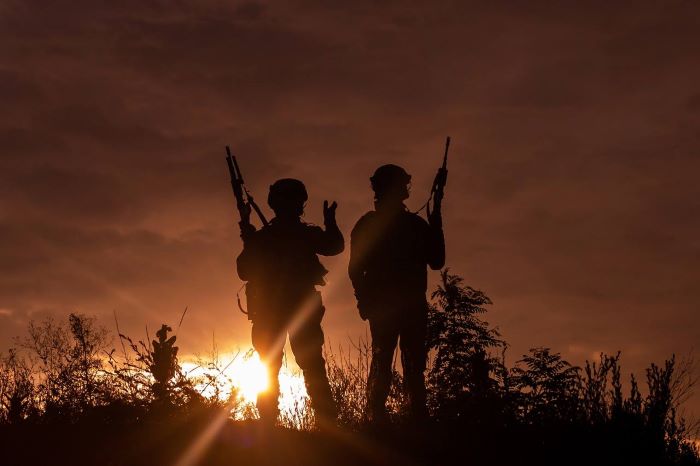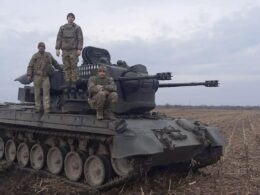Research conducted by the Info Sapiens research agency on April 2-3 showed that 50% of the surveyed Ukrainians believe the mobilization is going in the wrong direction.
The Ukrainian parliament, Verkhovna Rada, passed an updated law on mobilization on 11 April, aimed at strengthening the nation’s mobilization efforts in the face of Russia’s unrelenting aggression. At the core of this law lies the urgent need to replenish the ranks of the Armed Forces of Ukraine, which have suffered significant losses over the past two years of the war. In light of a possible new large-scale Russian offensive, the Ukrainian leadership emphasizes the urgent need to strengthen military capabilities.
Data from the survey reported on the Novya Vidlik [New Countdown - eng] TV show on 4 April showed that 60% of respondents characterize the work of the Territorial Recruitment Centers (TRCs, the military administration of Ukraine that maintains military records and mobilizes the population) negatively. The largest share of respondents places responsibility for the mobilization going in the wrong direction on the TRCs (59%) and the Verkhovna Rada (55%).
Some 25% of the surveyed Ukrainians believe that the mobilization process is going in the right direction, and 25% abstained from answering.
The research showed that it is more difficult for women to assess the mobilization than for men: 30% of women abstained from answering, while among men, this figure was 19%.
This is also characteristic of villages and towns with a population of up to 50,000: 29% abstained compared to 20% in cities with a population of 50,000+. However, larger cities more often believe that everything is going in the right direction: 30% compared to 22% in towns up to 50,000 and villages.
Who bears responsibility for this
The largest share of respondents places responsibility for the mobilization going in the wrong direction on the TRCs (59%) and the Verkhovna Rada (55%).
In second place is the President (48%). In third place are the Cabinet of Ministers and the Military Medical Commissions of Ukraine (37% each). Citizens who are evading mobilization ("evaders," 15%) and the media (12%) are in the last place.
Men more often than women place such responsibility on the TRCs (64% versus 53% among women) and the Military Medical Commissions (42% versus 32%, respectively).
Assessment of the TRCs' work
60% of respondents characterize the work of the TRCs negatively, 19% positively, and 21% of those surveyed found it difficult to determine their answer.
Men evaluate the work of the TRCs more negatively (65%) than women (56%). Women find it more difficult to give such an assessment than men: 25% of women could not answer, while among men this share is 16%.
Those surveyed aged 35-44 are more negatively inclined towards the work of the TRCs: they more often give an extremely negative assessment (33% versus 25% on average in Ukraine).
Openness of men to join the military
Some 20% of men of conscription age 25-59 who are not currently serving consider joining the military: going as a volunteer, signing a contract, or being mobilized. About 63% do not consider this possibility, and 17% have not decided.
Among the possible factors that could motivate men of conscription age to join the military, there are two main groups:
- Need of an offensive on their hometown or such a threat (31%), full equipment provision (29%), and the opportunity to serve in their chosen specialty (27%).
- Guaranteed two-month training (22%), a defined term of service (20%), guaranteed periodic rotation (21%).
Some 24% of men of conscription age say that nothing could motivate them to join the military. A conscription notice could be such a motivating factor for 7%.
The research was conducted by Info Sapiens on April 2-3, 2024, using the Info Sapiens online panel. The study surveyed 800 respondents aged 18 to 70, residing throughout Ukraine, except for the occupied territories.
Related:
Ukraine’s new mobilization law falls painfully short of frontline expectations





